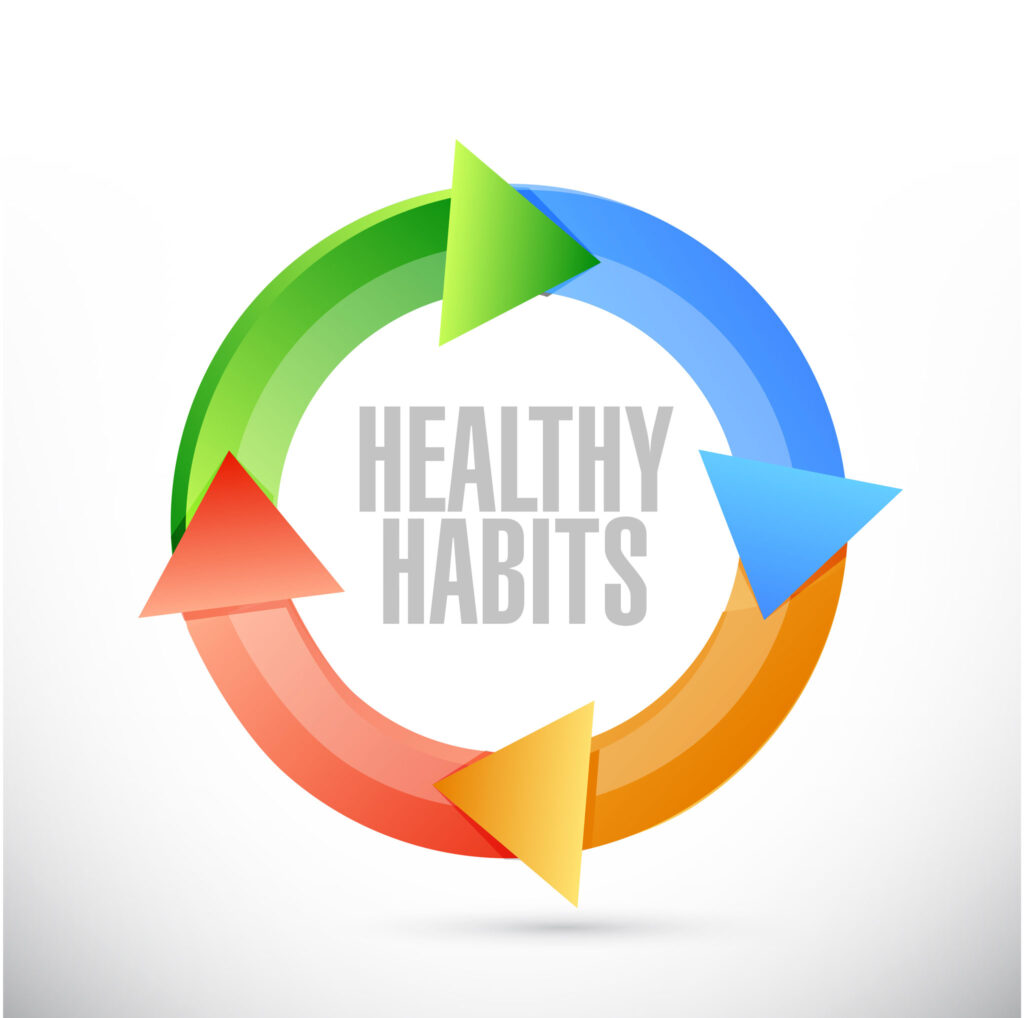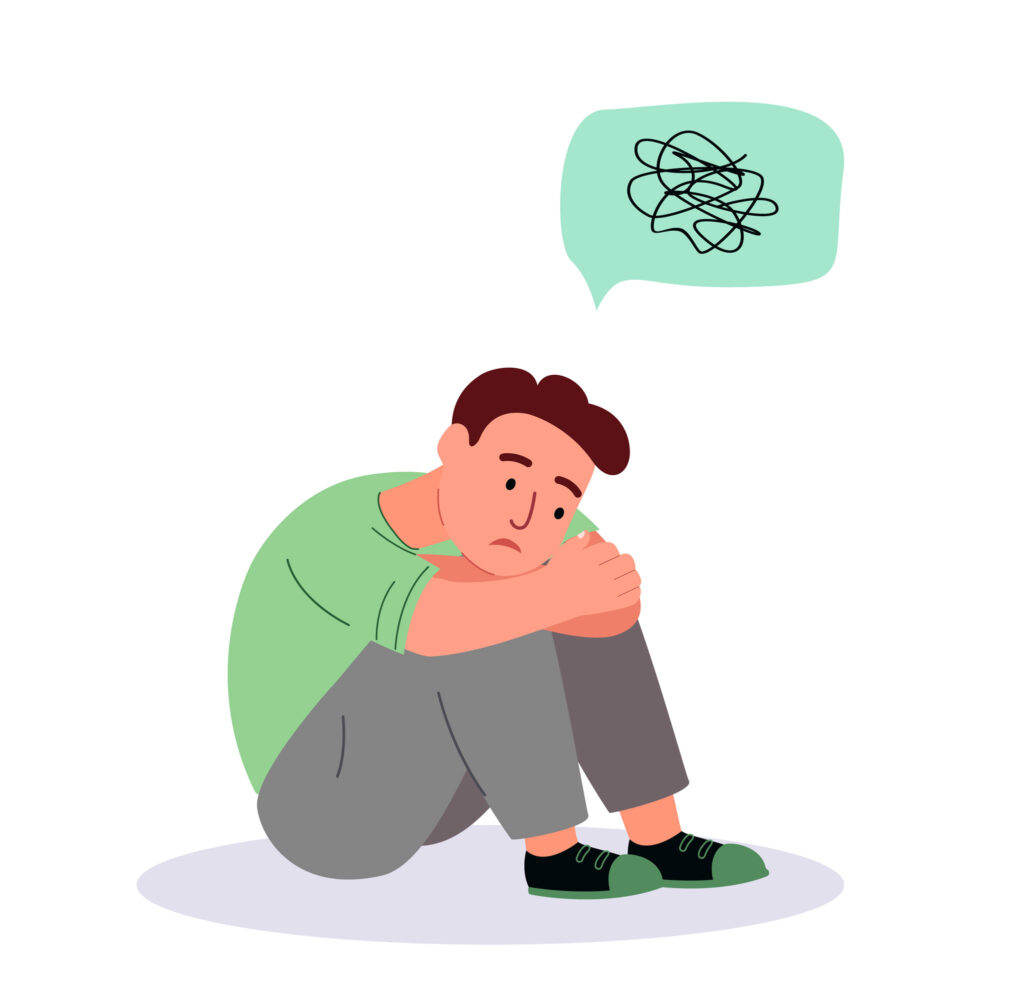Mental health deterioration has certainly been on the rise in the last few years. It was only exacerbated by the global pandemic, inflation, and the political climate, among many other significant stressors that we continue to face on a daily basis.
Since the global pandemic, mental health conditions have worsened for those with existing diagnoses, and more Americans are diagnosed with mental illnesses every day.
Feeling drained and overwhelmed is not uncommon; however, when feelings of hopelessness, prolonged sadness, and extreme anxiety begin to affect your daily life, it’s time to evaluate your mental health.
Suppose you believe you are experiencing a deterioration in your mental health. In that case, there are probably physical and emotional symptoms that are disrupting your everyday life and making it difficult to function. Keep reading for the important warning signs of a mental health disorder, changes you can make to combat any uncomfortable symptoms, and when it’s time to seek professional help.
What is mental illness?
The American Psychiatric Association (APA) defines mental illness as “health conditions involving changes in emotion, thinking or behavior (or a combination of these). Mental illnesses can be associated with distress and/or problems functioning in social, work, or family activities.”
Nearly one in five American adults experience some form of mental illness, with serious changes in their thoughts, function, behavior, and emotions. Because mental health is a significant component of our overall well-being, physical symptoms can be just as serious as emotional and psychological symptoms that individuals experience when struggling with depression, anxiety, bipolar disorder, and many other conditions.
As we know, mental illness is highly treatable, and many individuals who receive treatment are able to recover through therapy, medication, and lifestyle changes.
Signs and symptoms of poor mental health
The world we’re living in makes it difficult to prioritize our own mental health above the demands and obligations of our families, careers, social settings, and community. Unfortunately, letting your own mental health and wellness fall by the wayside can lead to a downward spiral to illness and, often, the diagnosis of a mental health disorder.
Here are a few of the signs and symptoms of declining mental health that you may experience for a prolonged period of time (between two and three weeks):
Low energy
Experiencing fatigue or feeling overtired is fairly common; most Americans don’t get enough sleep and overcompensate with caffeine and alcohol, which can both have a negative impact on energy levels. It can be a vicious cycle, but is not always a sign of mental illness.
Low energy from a mental health disorder feels like you can’t quite bring yourself to get out of bed. Whether you are physically or mentally lethargic, you may have trouble concentrating and communicating effectively. As a side effect of low energy, losing interest in typical social, physical, and intellectual activities is also common.
Substance abuse or misuse
Turning to drugs or alcohol to cope with mental health conditions is more common than you think. Studies show that nearly 37 percent of alcohol abusers and 53 percent of drug abusers also have at least one serious mental illness. Whether you’ve been diagnosed with a mental health disorder or you’re starting to show signs of mental illness, using substances to cope with a mental health condition is one of the most significant signs of depression and anxiety.
Sleep difficulty
Lack of sleep or poor quality sleep is often a red flag of depression and anxiety. Poor sleep can increase feelings of anxiety and can trigger mania or paranoia. Without a healthy sleep routine, it can be more difficult to cope with emotions and deal with stress. Sleep recharges the brain and helps improve cognitive function, memory, and positive emotions.
Heightened emotions
If you notice an increase in your emotions, whether it be anger, irritation, impatience, sadness, or extreme mood swings, it’s definitely worth paying attention to.
Heightened emotions are a sign of failure to self-regulate, which is often a symptom of depression and anxiety. When your thoughts and feelings become overwhelming, and you can’t seem to control them or regain calm, there may be more going on than just everyday stress.
Negative physical symptoms
The fact that mental health can affect physical health is often overlooked by people struggling with mental health disorders. Whether they’ve learned to ignore any physical signs or believe they are related to something else entirely, physical symptoms are a telltale sign of other mental health symptoms.
As we mentioned, your body has its own way of communicating internal issues. The side effects of mental illness can bring on a slew of physical symptoms, including chest pain, rapid heart rate, sweating, digestive problems, headaches, and many others.
Behavioral changes
Subtle changes in a person’s thinking, feelings, mood, and emotions can be signs of the development of a mental health condition. If you begin feeling “off,” not acting like yourself, or like something isn’t right, especially for an extended period of time (around three weeks), it may be time to talk to your doctor.
How to improve your mental health on your own
If you start to experience mental health issues and symptoms that affect your daily life, this doesn’t necessarily mean you have a mental illness. Physical, emotional, and psychological symptoms are your body’s way of alerting you that something is wrong.
There are many lifestyle changes and modifications that can be made to your routine that can make a significant difference to your mental and overall health. These healthy habits include:

- Getting enough sleep; at least seven to eight hours every night
- Avoiding screen time before you fall asleep
- Eating healthy, well-balanced meals
- Getting 20 to 30 minutes of exercise every day
- Drinking enough water every day
- Limiting caffeine and alcohol
- Having a trusted friend or family member for support
When to see a mental health professional
While different mental health disorders have their own symptoms, generally speaking, people will experience several of the following symptoms in a short period of time.

- Changes in personality, sleep, or appetite
- Struggling to cope with everyday activities
- Withdrawal from social activities
- Severe mood swings and anxiety
- Suicidal thoughts or self-harm
- Experiencing anger or violent behavior
- Unusual sadness or prolonged depression
The stigma associated with mental health makes it challenging for some individuals to seek treatment when they experience symptoms and signs like the ones listed above.
However, prolonging a diagnosis and necessary treatment will only make a mental health disorder worse. Seeing a mental health professional and potentially receiving a diagnosis are the first and most critical steps toward recovery.
What questions will a mental health professional ask you?
After talking with your primary care doctor or healthcare professional about your symptoms, they will likely recommend you get professional help from a therapist or psychiatrist.
You should be prepared to answer questions about your medical history, family history, and any medications you’ve taken or are currently taking.
The clinician will also want to know the details of your current thoughts and feelings. They will want to discuss your relationships, details about your job and daily routine, any alcohol or drug use, and any physical symptoms you’re experiencing.
Clear Behavioral Health mental health professionals are here to help.
Ready to seek appropriate treatment for your mental health symptoms? When warning signs and symptoms of mental illness and emotional distress begin to affect your everyday life, it’s time to seek the care of experienced mental health professionals. Individual therapy, support groups, and medication can make all the difference in mental health conditions, including depression, anxiety disorders, and bipolar disorder.
At Clear Behavioral Health, our approach is individualized and evidence-based to give our clients the best possible chance at long-term recovery from mental health disorders. We pride ourselves on our expert clinical team, who are highly skilled in the latest in evidence-based treatments and therapies. Contact us today to learn more about our residential mental health programs for severe mental health conditions, outpatient programs offering more support than individual therapy, and our virtual IOP serving all of California.
